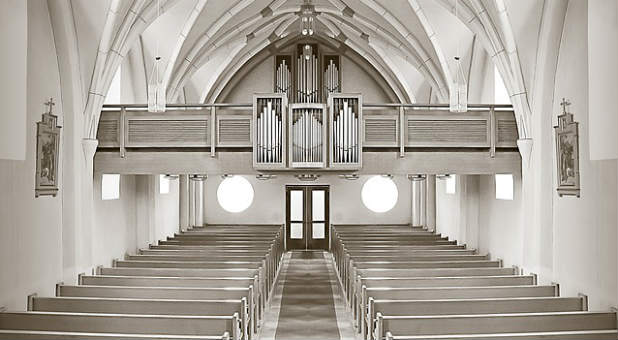
Every year, our International Apostolic Team (IAT), which includes regional leaders from all over the Every Nation world, gathers together to fellowship, pray and plan for the coming years (and even decades). Every Nation Church Yokohama hosted our 2017 IAT meeting.
One of our conversation topics last week was liturgy and how we can equip our pastors to think critically (and even creatively) about the relationship between worship and discipleship. Working as we do in so many different cultural contexts, we recognized the need to better equip our missionaries and church planters to think through how worship works in general and how it works in their particular context.
One of our starting points was a discussion about the role of different liturgical practices in church history.
When we look back through history, we find that though the core elements of Christian worship have remained consistent (fellowship, singing, preaching, communion, offering), different elements are emphasized at different times.
For example, in medieval Europe, the climax of the liturgy was communion. Services still featured singing, fellowship, preaching and offering, but the greater emphasis was on the celebration of the Lord's table. In Reformation Germany, the emphasis shifted back toward the preached Word. Again, the other elements of Christian worship were still present, but the shape of Protestant liturgy emphasized the importance of the preaching. Fast-forward another 500 years to the Charismatic movement of the 1960s and 70s. Though Charismatic churches valued the preached Word and the celebration of communion, their worship services emphasized singing and experiencing God's presence during longer worship.
Today, if you were to attend churches with roots in these three traditions, you would still notice the different points of emphasis in the worship. Though some people would argue that one worship tradition or style is better than another, it's more helpful to realize that in every time and place, pastors and leaders have adjusted or emphasized elements of the liturgy in response to three impulses: missiological context, theological tradition and practical necessity. Let's look at those reasons.
1. Missiological Context. Medieval Catholicism, for all its faults, emphasized certain very visual liturgical practices (like communion) because church leaders were communicating the gospel to highly illiterate European populations—many of whom (at least initially) did not speak the same language as their priests. Hence, the emphasis on communion, a highly visual liturgical practice that powerfully represents the core truths of the gospel to people who can't read (or maybe can't even understand the sermon).
2. Theological Tradition. Protestant churches during the Reformation, because of their theological emphasis on sola scriptura, felt that the preaching of the Word needed to be the main focus of corporate worship. Though they appreciated the ways that other liturgical practices, like communion, gave worshippers a visual representation of the gospel, they felt that the Word of God had too often been absent from medieval worship practices, resulting in disciples whose knowledge of the gospel was real but underdeveloped.
3. Practical Necessity. During the Charismatic movement, many pastors and leaders (who were part of mainline cessationist denominations) were kicked out of their churches for their insistence on the continuing work of the Holy Spirit. Thus, out of both practical necessity and a theological conviction about the continued work of the Holy Spirit in the life of the church, Charismatic churches—and their particular liturgy—were birthed. While valuing the preached word, this tradition places a great emphasis on sung worship, with the expectation that people will encounter the living God in profound and unique ways as they come into His presence with singing.
As you think about liturgy and your own missiological context, remember that worship is not primarily about what we can do for God; it is about what God does in us by the Holy Spirit as we gather in His presence. ![]()
Steve Murrell serves as the president of Every Nation Churches and Ministries, a ministry that does church planting and campus ministry in over 70 nations.
This article originally appeared at stevemurrell.com.
Get Spirit-filled content delivered right to your inbox! Click here to subscribe to our newsletter.
Dr. Mark Rutland's
National Institute of Christian Leadership (NICL)
The NICL is one of the top leadership training programs in the U.S. taught by Dr. Mark Rutland. If you're the type of leader that likes to have total control over every aspect of your ministry and your future success, the NICL is right for you!
FREE NICL MINI-COURSE - Enroll for 3-hours of training from Dr. Rutland's full leadership course. Experience the NICL and decide if this training is right for you and your team.
Do you feel stuck? Do you feel like you’re not growing? Do you need help from an expert in leadership? There is no other leadership training like the NICL. Gain the leadership skills and confidence you need to lead your church, business or ministry. Get ready to accomplish all of your God-given dreams. CLICK HERE for NICL training dates and details.The NICL Online is an option for any leader with time or schedule constraints. It's also for leaders who want to expedite their training to receive advanced standing for Master Level credit hours. Work through Dr. Rutland's full training from the comfort of your home or ministry at your pace. Learn more about NICL Online. Learn more about NICL Online.


